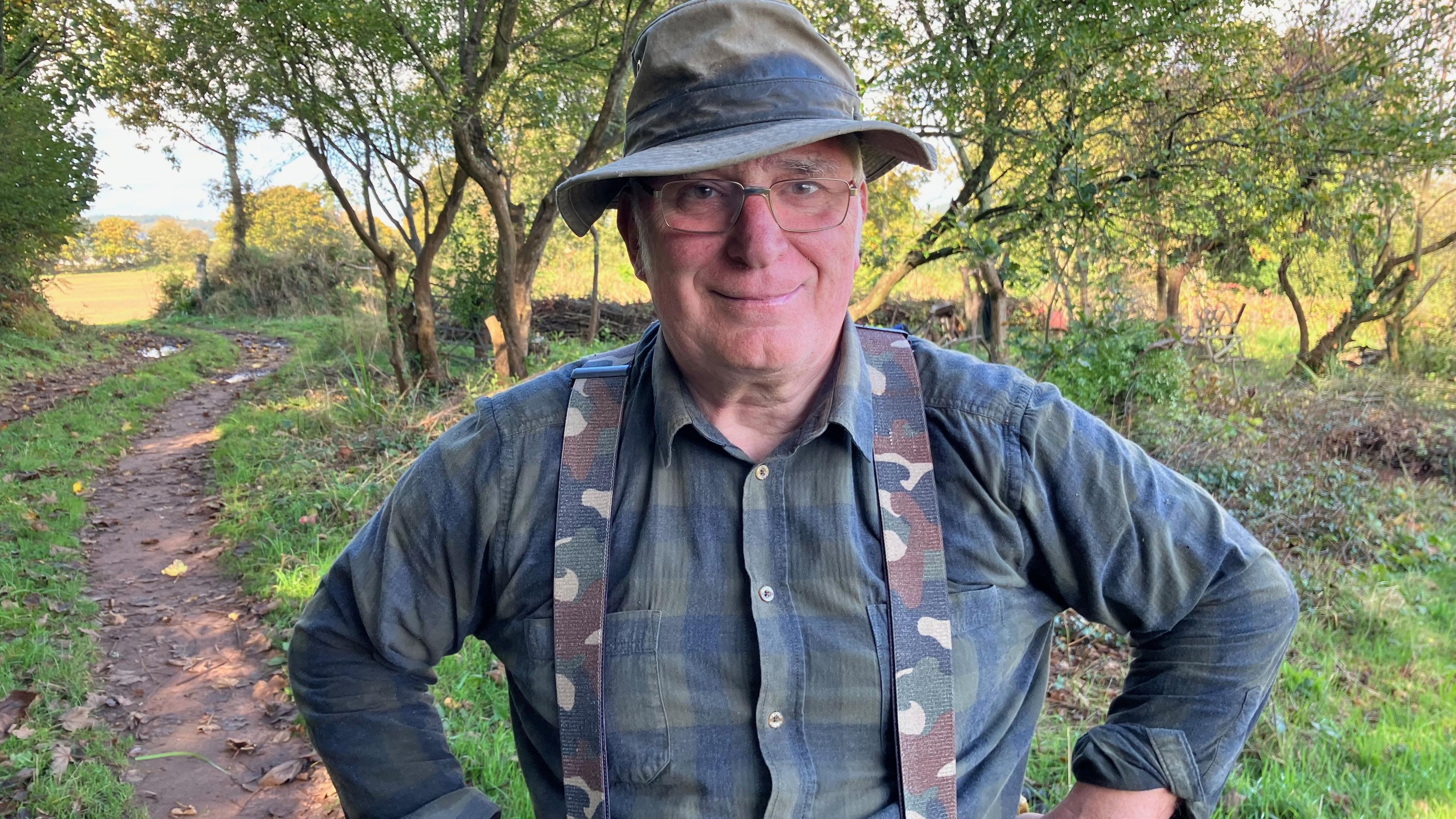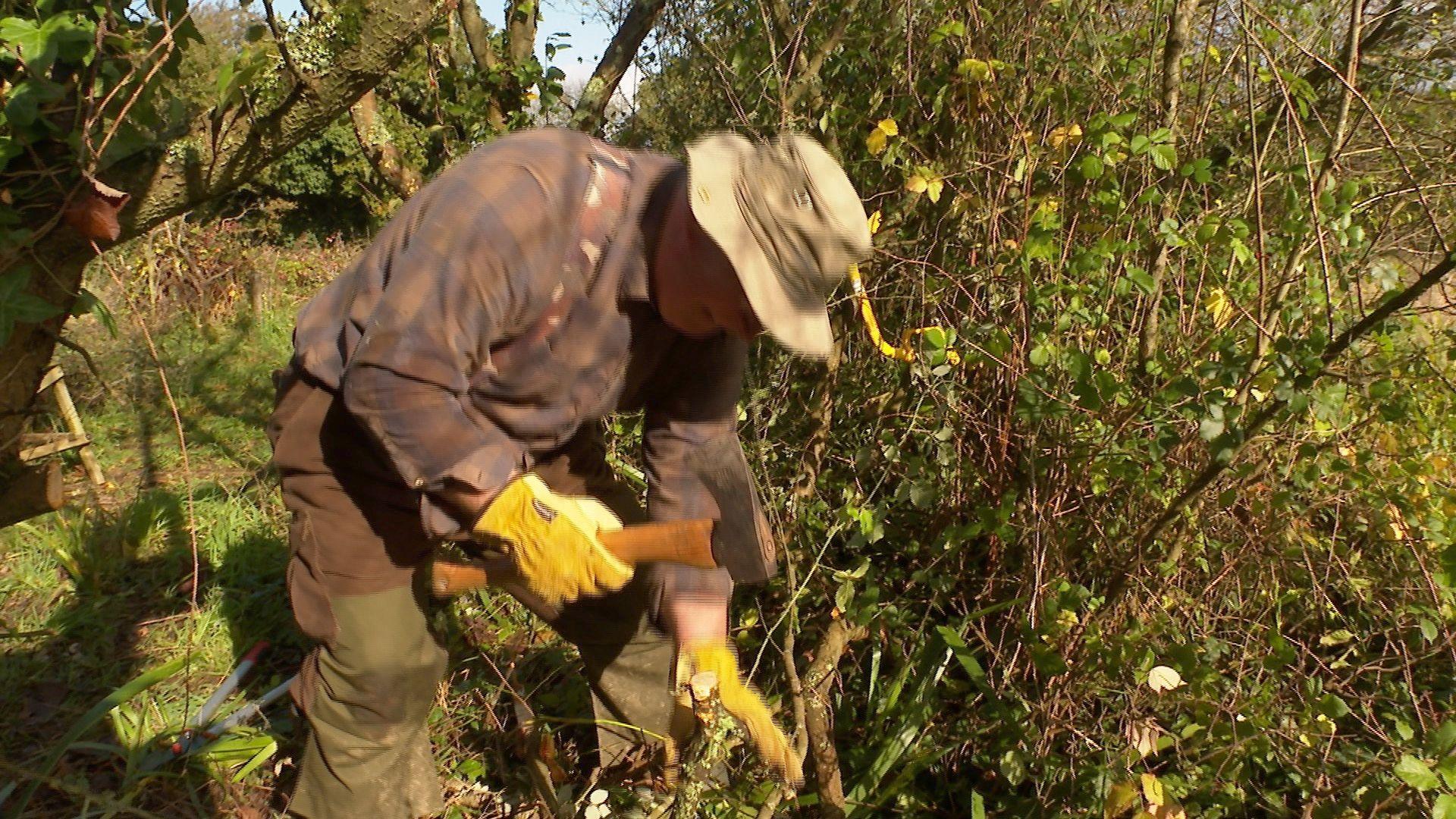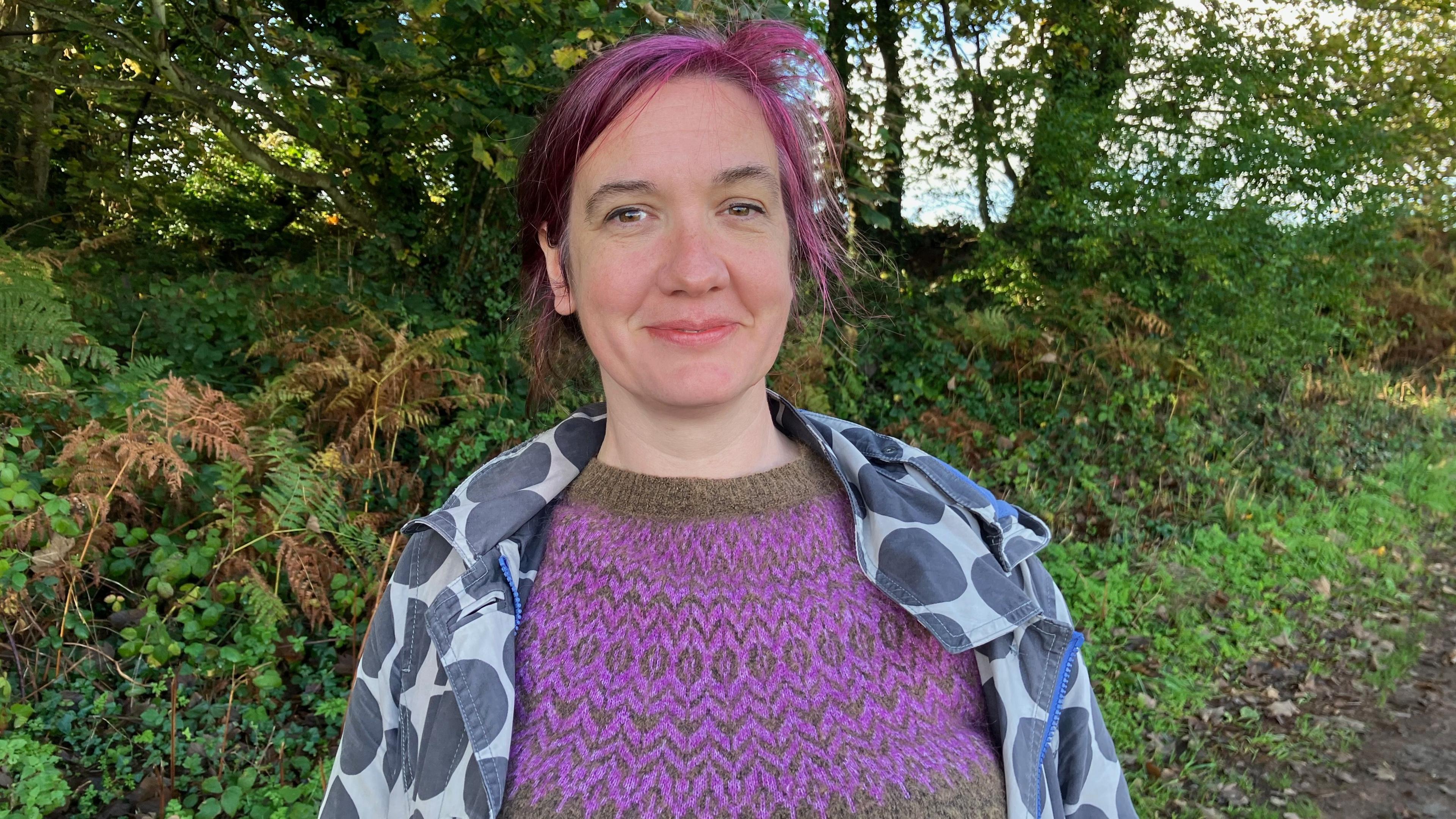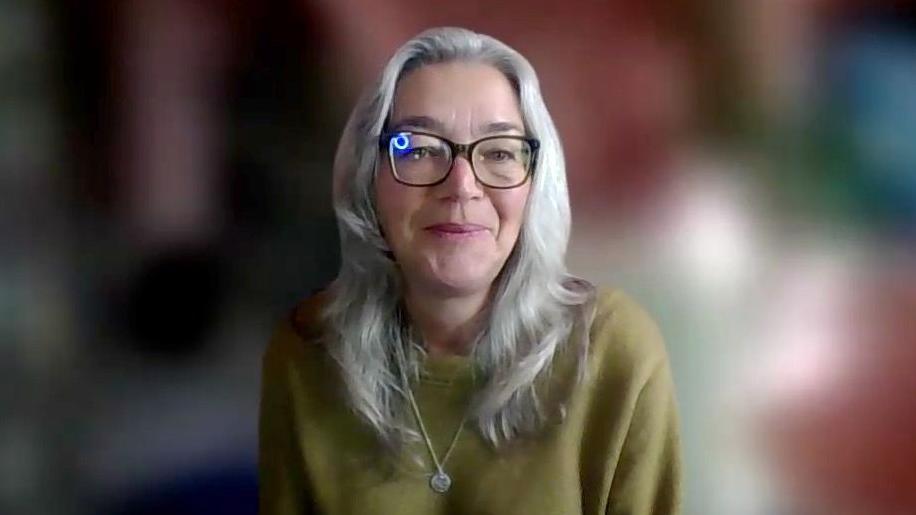Nature scheme helping patient wellbeing - experts

Werner Lothmann said the nature scheme had helped his family member's wellbeing
- Published
A programme that encourages hospital patients to get out and about in nature is helping their wellbeing and could save the NHS in treatment costs, health experts believe.
The charity Centre for Sustainable Healthcare is running the NHS Forest Project, which aims to transform 6,000 hectares (14,826 acres) of green spaces at health sites to encourage patients to engage with nature.
Langdon Hospital, a secure mental health hospital in Dawlish, Devon, is one of the sites taking part in the initiative.
The theory is green spaces could help with a range of problems such as heart disease, stress, obesity, diabetes and depression.

Work is carried out in green spaces at Langdon Hospital in Dawlish
The hospital's outdoor sessions involve patients and family members working together to help restore Devon hedges.
Werner Lothmann, who has a relative at the hospital, is among those assisting with the work.
He said he had noticed how the activity had helped with his family member's treatment.
"It takes them out of an enclosed environment," he said.
"They feel free. Being in nature, it's calming. I think it is a bit of a refuge or sanctuary."

Una Devlin from the NHS Forest Project said the programme could have a "calming effect" on people
The NHS Forest began as a tree-planting project in 2009.
Since then, more than 360 healthcare sites across the UK have joined the programme and more than 100,000 trees have been planted on or near the facilities.
"Being in hospital or having to visit the doctor, it can be a stressful experience," said Una Devlin from the project.
"We know that being able to have green spaces can [have a] very calming effect on people, it can really, really help them."

Prof Ruth Garside said the programme was proving financially beneficial
Prof Ruth Garside, from the University of Exeter Medical School, has been evaluating the mental health impact of nature-based social prescribing.
She said her work had showed her the programme was proving financially beneficial.
“[We] looked at seven pilot sites in England, where green social prescribing was offered, and they were trying to improve access to it," she said.
"The work that we did there looked at something called the social return on investment and found that for [every] £1 invested, there was £1.88 returned.
"So I think we're starting to build that evidence we need, [but] we need more."
Related topics
- Published18 April 2023

- Published22 August 2021

- Published1 March 2023
